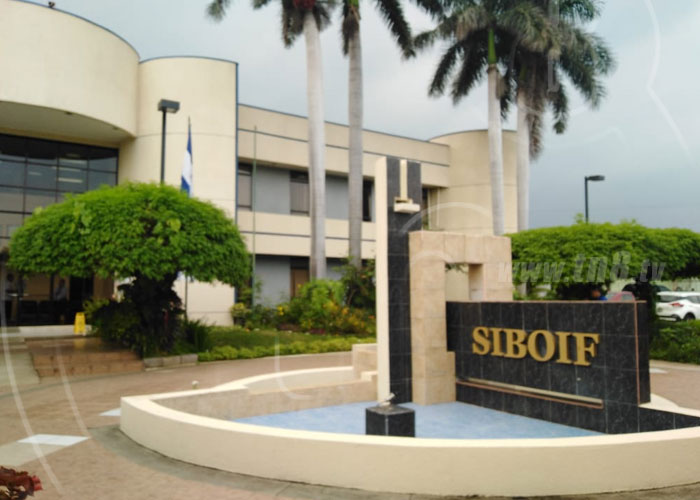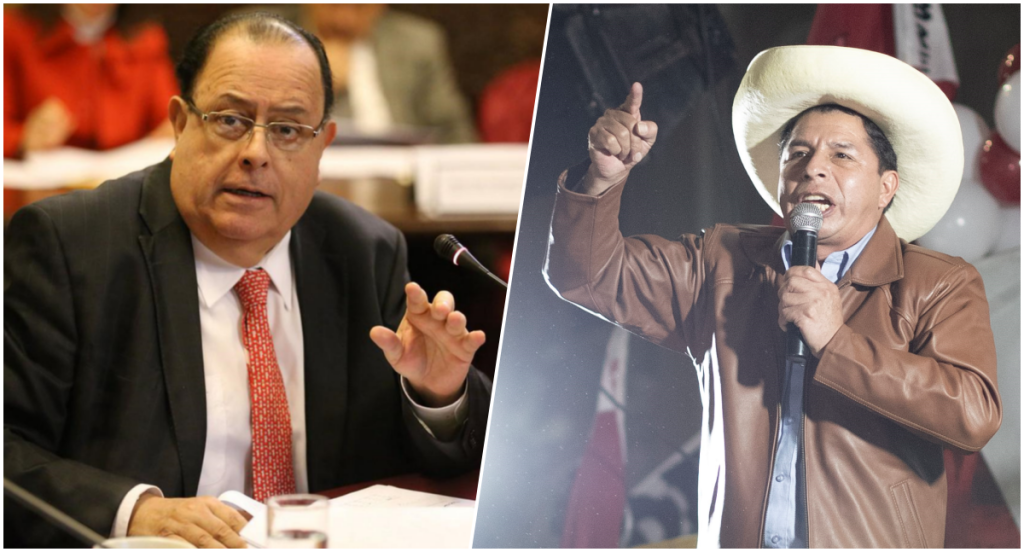The dictator Daniel Ortega was left in pure bravado with his vaunted Law for the Protection of Sanctioned Persons, and this same Wednesday, November 27, 72 hours after the promulgation, he ordered the Superintendency of Banks and Other Financial Institutions (SIBOIF), to guide national banks that can continue to fulfill their international contractual commitments, which for experts that means “abiding by sanctions.”
The SIBOIF, the institution of the dictatorship in charge of regulating the national financial system, issued circular DS-DS-3882-11-2024/LAME, addressed to general managers of “supervised entities”, that is, national banks, with guidelines on how they should apply Law 1224, “Law for the protection of Nicaraguans against external sanctions and aggressions” with respect to “international contractual regulations”, that is, given the limitations that the national bank has to provide services to people designated as international criminals through sanctions.
The document, signed by the political operator of the dictatorship, who plays the role of superintendent of banks, Luis Ángel Montenegro, indicates that, to comply with Law 1224: 1) «Financial institutions must maintain compliance with the regulations against money laundering. of assets and financing of terrorism.
Related news: The Sanctioned Law has already been in force since November 25; national bank remains silent
And as point 2), “financial institutions must establish intensified due diligence measures for clients designated on (sanctioned) lists, and must report to the Financial Analysis Unit (UAF). It must be verified that the provision of international financial services for these clients (those sanctioned) corresponds to international contractual regulations,” the circular details.
A source of Article 66 confirmed that, indeed, the circular has been sent to the management of all banks operating in the country.
Dizzying recoil
“The Ortega-Murillo regime has backed down, that is the only interpretation that can be given to the circular sent to the banks by the SIBOIF,” said the informant, linked to the banking system, and who spoke with Article 66 on condition of anonymity.
«It could be a sign that they want to back down. With sanctions there are no half measures, either you comply or you don’t comply,” said the source when referring to strict compliance with the actions brought against the officials of the dictatorship by the US, Canada and the European Union.
And the fact is that the process of formation, validity and now “accommodation” of the Law of those sanctioned has occurred in the same week, with only hours of difference between its approval and the circular that apparently softens its application.
Last Monday, November 25, Ortega’s deputies unanimously approved the regulations that force national banks to reopen accounts and reactivate banking services for all officials of the regime, sanctioned by the international community. This measure endangers national banks, which would be forced to suspend their correspondents with banks that operate in the countries that have applied the sanctions, due to the restrictions that these measures impose.
Related news: Is Ortega backing down with his Sanctions Law or is he only seeking to contain a reaction from the United States?
If the correspondents were canceled, in the opinion of experts, it would be a financial catastrophe for the country, since the flow of billions of dollars, product of remittances and trade, to Nicaragua that move through these banking relationships would be stopped.
However, the dictatorship seemed emboldened. Ortega’s political operator in the National Assembly, Walmaro Gutiérrez, said, during the approval of the Law, that they were “fed up” with the sanctions and disparaged the correspondents saying that they are only contracts between private companies that could not be above the laws. of the country, therefore, the banks had to comply.
Immediately afterwards, the 91 deputies voted in favor of the new norm and a few hours later, it was published, stealthily, on a special edition of La Gaceta, Official Gazette, with which it was put into effect on the same day of its approval. 72 hours later, the regime abandoned its emboldening and advised banks that they can continue to meet their “international obligations.”
That means, according to the banking source, that financial institutions could open accounts for those sanctioned but would not issue them credit or debit cards. Nor could they channel international transfers or payments of any kind from their accounts.
They try to accommodate the application of the “savage” they made
For the doctor in economics and exiled opposition leader, Juan Sebastián Chamorro, the SIBOIF circular is an attempt by the regime to accommodate the application of the Law for the Protection of Sanctioned Persons, which he described as “a savagery.”
Likewise, he believed that the attempt to accommodate the application of that Law would be indicating that, after its approval last Monday, a “negotiation” could have taken place in which the bankers clarified the repercussions of the regulations to the dictator.
Chamorro agrees that, indeed, the Superintendency is directing the banks to reopen the accounts of those sanctioned but that they take steps so that this does not affect the correspondents or the international markets, however, the economic expert considers that it remains to be seen if International banking entities accept this application.
However, the analyst does not see a setback in the execution of the regulations but rather an “accommodation” that they are seeking to avoid having problems with the issue of money laundering, but “the threat against the bankers persists, they continue to have the sword of Damocles,” warned the economist.
Likewise, he warned that the sanctioned law is still in force, therefore the high risk of the business climate in the financial sector remains.
















